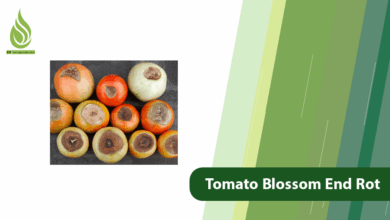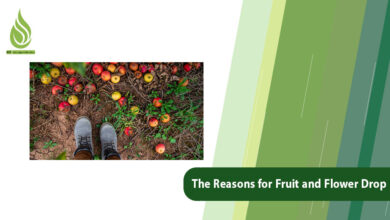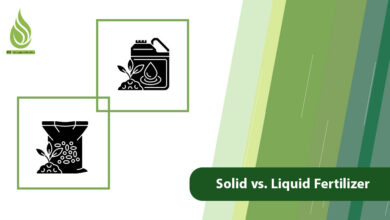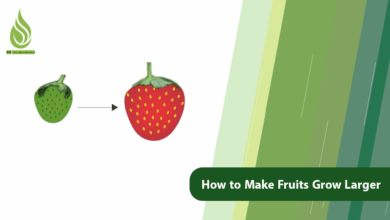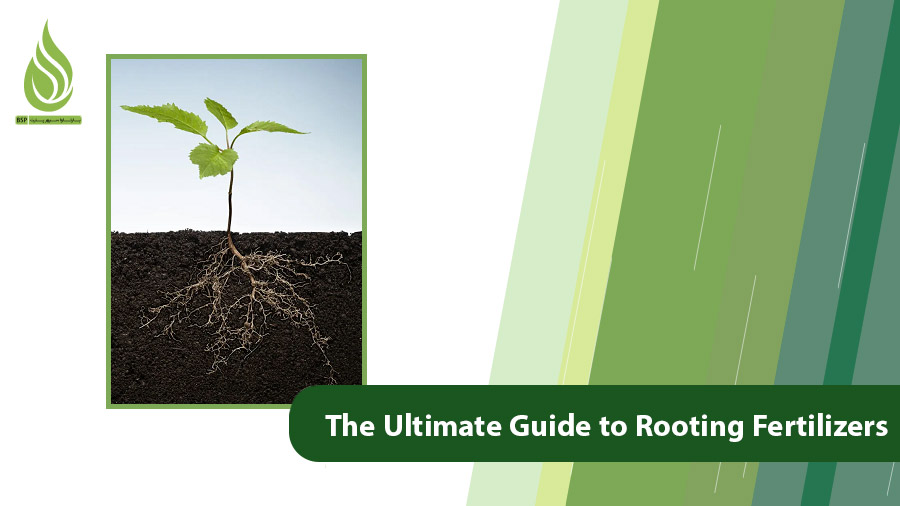
The Ultimate Guide to Rooting Fertilizers for Trees & Plants
Rooting fertilizers are designed to enhance and promote the growth of plant roots. In this article, we’ll introduce you to the best fertilizers that can strengthen the root systems of both plants and trees. Stay tuned!
Fertilizers for Rooting: The Key to Root Growth for Plants and Trees
The elements that promote root growth can be divided into two main categories:
- Rooting hormones
- Fertilizers for rooting
Rooting hormones, which can be natural or synthetic compounds like indole butyric acid and naphthalene acetic acid, specifically stimulate and accelerate root development. These hormones are typically used in very small quantities and influence the physiological processes of the plant. On the other hand, rooting fertilizers are nutrient-rich compounds that provide essential nutrients for plants. These fertilizers contain both macro and microelements that support the overall growth of plants and their roots.
Rooting hormones directly affect cell division and root development while stimulating the plant’s biochemical processes. In contrast, rooting fertilizers enhance root growth and overall plant health by supplying nutrients and improving soil conditions.
Hormones are generally applied during cutting and grafting to boost the rooting percentage. However, rooting fertilizers are beneficial at all stages of plant growth, as they help strengthen the root system and improve root health.
Using rooting fertilizers at the right time and in the right amounts can improve both the quality and quantity of your yields. It’s important to note that root-forming fertilizers are particularly effective in poor soils that lack nutrients. Additionally, during stressful conditions such as drought or sudden cold spells, rooting fertilizers can provide much-needed support.
Root-forming fertilizers can benefit a wide range of agricultural and horticultural crops. Some of the products that require rooting fertilizers during their growth include:
- Crops like wheat, barley, corn, rice, and potatoes
- Garden products such as fruit trees, vegetables, berry bushes like strawberries, flowers, and ornamental plants
- Cuttings and seedlings of ornamental plants and fruit trees
- Plants grown in hydroponic systems
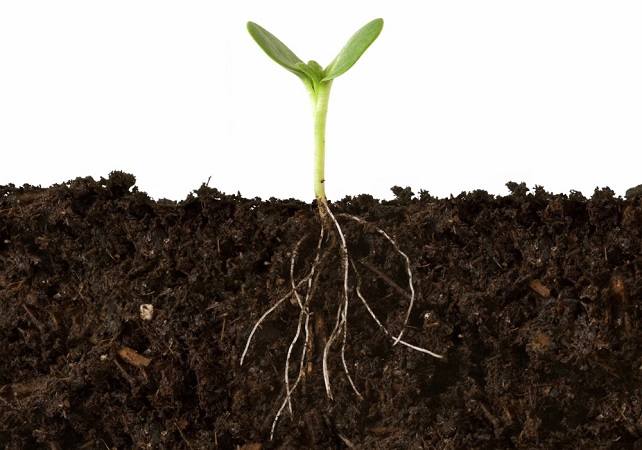
What Are the Types of Rooting Fertilizers?
In addition to rooting hormones that stimulate root growth, some fertilizers promote root, leaf, and overall plant growth by providing essential nutrients. These fertilizers contain either chemical or natural compounds that positively impact the root systems of plants.
Types of agricultural fertilizers that support plant rooting include:
- Organic manure, such as compost and vermicompost, improve soil structure and increase nutrient availability.
- Mineral fertilizers include nitrogen, phosphorus, potassium, and micronutrients. These mineral fertilizers can be found in both liquid and solid forms.
The nutrients provided by fertilizers can be categorized into two groups: macronutrients and micronutrients. Key elements that support rooting include:
- Macronutrients: nitrogen, phosphorus, potassium, calcium, magnesium, and sulfur
- Micronutrients: iron, manganese, zinc, copper, boron, and molybdenum
Both macronutrients and micronutrients are essential for proper root growth and overall plant health. Supplying these elements through soil and fertilizers can significantly strengthen rooting. Among these elements, nitrogen, phosphorus, and potassium are the most commonly utilized for promoting root growth.
Phosphorus: The Primary Stimulator of Root Growth
If you’re looking for a single fertilizer to enhance root growth, phosphorus fertilizer is your best choice. Phosphorus is a powerful stimulant for the roots of both plants and trees. It plays a crucial role in the structure of key molecules like ATP (adenosine triphosphate) and DNA. ATP serves as the energy source for many metabolic reactions that are vital for root growth.
Phosphorus aids in stimulating cell division and the development of lateral roots, which results in stronger roots that can absorb more nutrients and water. Additionally, sufficient phosphorus in the soil helps roots withstand adverse conditions such as drought and nutrient scarcity. When roots have adequate phosphorus, they can more easily absorb other nutrients, promoting root health and the growth of other plant parts.
It’s essential to use phosphorus-containing fertilizers during the initial stages of plant growth to encourage root development. After that, depending on soil needs, you can apply phosphorus-rich fertilizers like NPK fertilizer with high phosphorus content in subsequent growth stages. Some farmers even apply phosphorus-containing fertilizers at the base of cuttings to speed up the rooting process.
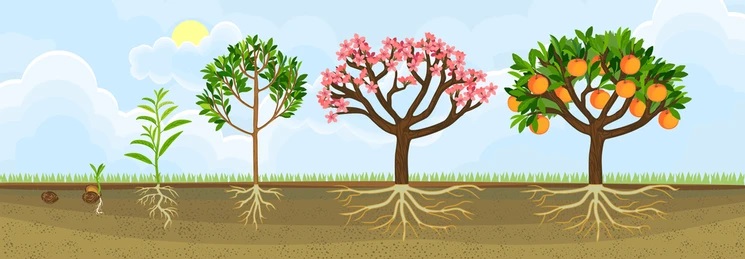
The Impact of Nitrogen and Ammonium Sulfate Fertilizer on Rooting
Nitrogen is a crucial macronutrient for the growth and development of plants. It plays a vital role in protein synthesis, which is essential for building new cells and plant tissues, particularly in the development and strengthening of roots. By promoting cell division and growth, nitrogen encourages roots to penetrate deeper into the soil, thereby increasing the surface area available for absorbing water and nutrients. Additionally, nitrogen influences the production of plant hormones, such as auxins, which are key in directing root growth and formation.
Ammonium sulfate serves as an effective nitrogen fertilizer that supplies both nitrogen and sulfur, which are necessary for healthy plant growth. This fertilizer is particularly beneficial for enhancing root development, overall plant growth, and improving plant health. The ammonium form of nitrogen found in ammonium sulfate is rapidly absorbed by plants, facilitating faster growth for both the plant and its roots. Applying ammonium sulfate at the time of cutting or when planting seedlings can significantly increase the rooting success rate.
Potassium Fertilizer: An Essential Nutrient for Root Growth
Potassium is one of the key nutrients that plants need, and it plays a vital role in promoting root growth. This nutrient helps strengthen the structure of roots, enhancing their strength and stability. Stronger roots are better equipped to absorb nutrients and water, leading to healthier plants. Potassium also stimulates cell division and the growth of lateral roots, which increases the root’s contact surface with the soil. Proper use of potassium at different stages of plant growth, especially during root development, can significantly improve the overall health and performance of the plant.
To maximize the effectiveness of fertilizers in promoting the growth and strengthening of plants and trees, it’s crucial to understand when and which fertilizers to use. Conducting soil tests can help you determine the specific nutritional needs of your soil. By addressing these needs, you can optimize root growth and enhance overall plant development.
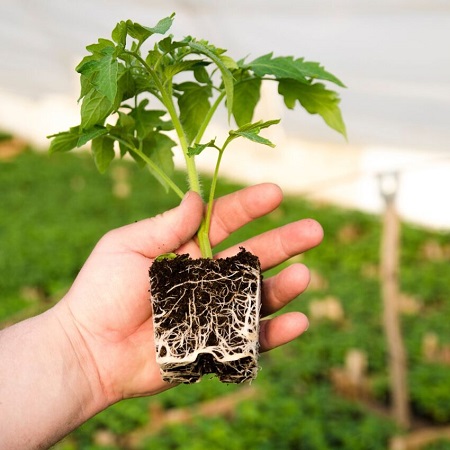
How Can You Tell if Your Plant Needs Rooting Fertilizer?
Overusing fertilizers without a plan can harm your plants rather than help them. By identifying the specific nutrient needs of your plants, you can provide the elements they require for optimal growth. But how can you recognize when your plant needs rooting fertilizer? Here are some signs and symptoms to watch for:
- Poor or Irregular Root Growth: If the roots appear stunted or are not growing well, it’s a clear indication that the plant needs rooting fertilizer.
- Yellowing of Lower Leaves: When the lower leaves turn yellow, it may signal that the plant’s roots are weak.
- Reduced Resistance to Diseases: If your plant is frequently affected by diseases and pests, it may require a stronger root system. In such cases, applying fungicide may also be necessary.
- Thirsty Plant: If the soil dries out quickly and the plant struggles to absorb water, this could indicate weak roots.
- Imbalanced Growth: If a plant grows tall without a corresponding root system, it may need rooting fertilizer.
- Growth Stoppage: A sudden halt in growth may suggest that the roots are lacking essential nutrients.
Recognizing these signs can help you determine the right time to apply rooting fertilizer, ultimately improving your plant’s health and performance.
When Is the Right Time to Use Root Fertilizer?
The timing for using rooting fertilizer depends on the type of plant, cultivation method, and environmental conditions. While exact timing can vary based on the specific needs of the plant and any soil deficiencies, here are some general guidelines for when to apply rooting fertilizer:
- Cutting Time: Before taking cuttings, soaking them in a rooting fertilizer solution can increase the chances of successful rooting. After cutting, applying rooting fertilizer to the soil or growing medium can help accelerate the rooting process.
- Soil Preparation Time: Before planting, adding rooting fertilizers to the soil during preparation can enhance soil structure.
- Early Stages of Plant or Seedling Growth: Applying rooting fertilizer when planting young seedlings can promote faster root development. Additionally, using rooting fertilizer in early spring or summer, when plants are actively growing, can yield positive results.
- Stressful Conditions: When transferring plants to the main field or during stressful conditions like drought or sudden temperature changes, rooting fertilizer can help strengthen the roots.
- Before Transplanting: To improve the chances of successful rooting for cuttings, applying rooting fertilizer before transplanting can be beneficial.
Applying rooting fertilizer at the right time can enhance both the quality and quantity of agricultural products. However, it’s essential to conduct soil tests before applying any fertilizers. Testing will reveal the specific needs of your plants, allowing you to choose the best rooting fertilizers accordingly.
How Do Environmental Conditions Affect the Efficiency of Rooting Fertilizers?
For effective plant and root growth, merely using fertilizers and hormones is not sufficient; environmental conditions play a significant role in the effectiveness of rooting fertilizers. Key environmental factors include:
- Application Timing: Different macro and micronutrients are more critical at various stages of plant growth. For instance, phosphorus is crucial during the planting stage, while potassium becomes more important as the plant grows. Understanding the optimal timing for fertilizer application requires soil testing and identifying soil needs. Consulting with an agricultural expert can help you develop a consistent fertilization schedule.
- Soil Moisture: Proper moisture levels are essential for the absorption of rooting fertilizers. Too much or too little water can hinder their effectiveness. Ensure that the soil around the cuttings has adequate moisture—neither too dry nor overly saturated.
- Temperature: Soil temperature impacts microbial activity and nutrient absorption. Extreme temperatures, whether too low or too high, can diminish fertilizer effectiveness.
- Soil pH: If the soil pH is not within the optimal range, plants may struggle to access the nutrients in the fertilizer. Maintaining the right pH level is crucial for nutrient absorption.
- Soil Composition: The type and texture of the soil (clay, sand, loam) can affect nutrient absorption and retention.
- Presence of Pollution: Toxic substances or chemical pollutants in the soil can negatively impact fertilizer performance.
By considering these environmental factors, you can enhance the effectiveness of your rooting fertilizers and promote healthy plant growth.
